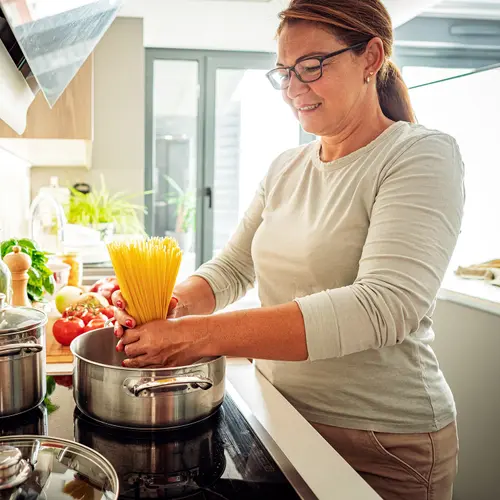April 17, 2000 (Bethesda, Md.) -- Before her children reached their teens, Barbara Basham, 52, watched for opportunities to teach them about the dangers of drugs. A news story about a celebrity arrested for drunk driving, a television show featuring a character hospitalized for substance abuse, became, as she puts it, teachable moments.
"There are a ton of opportunities to talk to your children about drugs if you look for them. We just integrated the discussions into our daily lives," says Basham, a financial consultant in Vallejo, Calif. Basham and her husband Jeff, 52 and retired, also taught by example. "There are no drugs in this house and we have only an occasional glass of wine or beer," she says. "You can't be a hypocrite. Children can detect that instantly."
Basham instinctively believed what recent research has confirmed: Parents can play a major role in helping their children avoid drug and alcohol abuse. By starting early, talking openly, and setting a good example, she did what she could to guide her two children through the turmoil of adolescence.
It wasn't easy, and the Bashams, like most families these days, had their work cut out for them. According to the Partnership for a Drug-Free America, 80% of 12th graders have tried alcohol, and 41% of 13- to 18-year-olds have tried marijuana. But unlike many of their peers, the Basham children did not experiment with drugs. Their mother's advice to other parents? Start early, and keep talking.
How Parents Can Make a Difference
The National Center on Addiction and Substance Abuse at Columbia University (CASA) found in a 1999 study that teens who live in homes where parents talk to them frequently about the dangers of using drugs are less likely to use drugs even when they are readily available at school. Over 40% of teens who never smoked marijuana say they resisted because of their parents' influence.
"These findings are very, very significant. They say that parents can have a positive influence on their kids," says Alyse Booth, who oversees the CASA study on teen attitudes toward drugs.
Still, the overwhelming majority of teens say that they are not learning about drugs at home. According to a 1998 study by the Partnership for a Drug-Free America, virtually all parents reported talking with their teenagers about drugs at least once. But, significantly, nearly two-thirds of the teenagers couldn't recall even one conversation on that subject.
Howard Simon, a spokesman for the Partnership, says, "You can't have a single conversation and think the job is done. You have to have an ongoing dialogue. It's like advertising: One message doesn't get through. Advertisers know they have to run the message time and again and present it in different ways to get it across."
Breaking the Ice
Jeanette Friedman, a social worker at New York City's Phoenix House, the nation's largest nonprofit drug prevention program, says, "Kids are more likely to use drugs if parents seem to have any tolerance at all. This brings up a delicate issue for many baby boomer parents, who experimented with drugs in their youth, and who find that zero tolerance seems a hypocritical standard to enforce." Simon says, "Parents are often terrified by this. But you can share what you learned and tell your children that you don't want them to make the same mistakes."
Look for opportunities to introduce the subject of drugs into ordinary conversations. "Watch television with your child. Television programs are full of these opportunities," says Friedman. "Mention Uncle John who acts funny when he drinks. Say, 'I heard somebody at your school was using marijuana, what do you think about that?' "
Above all, say counselors, it's important to try. "Many parents underestimate the influence that they have," says Alyse Booth of CASA.
As for the Basham children, they are now 18 and 20. Having survived high school, both are now in college, excelling academically -- and still avoiding drugs, reports Barbara Basham. "So far, so good," she says.
Rochelle Jones is a writer based in Bethesda, Md. She has covered health and medicine for the New York Daily News and the St. Petersburg Times.

